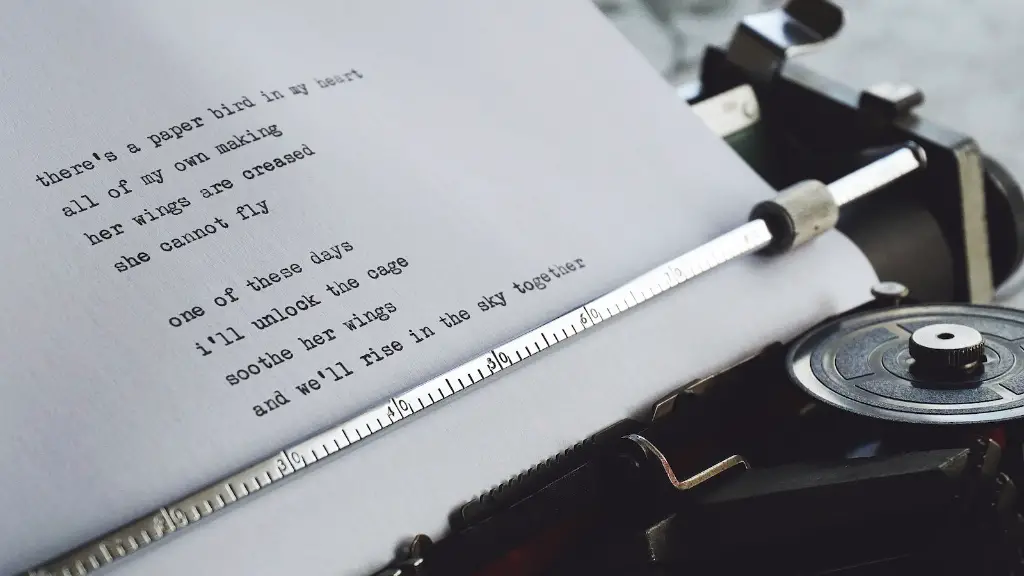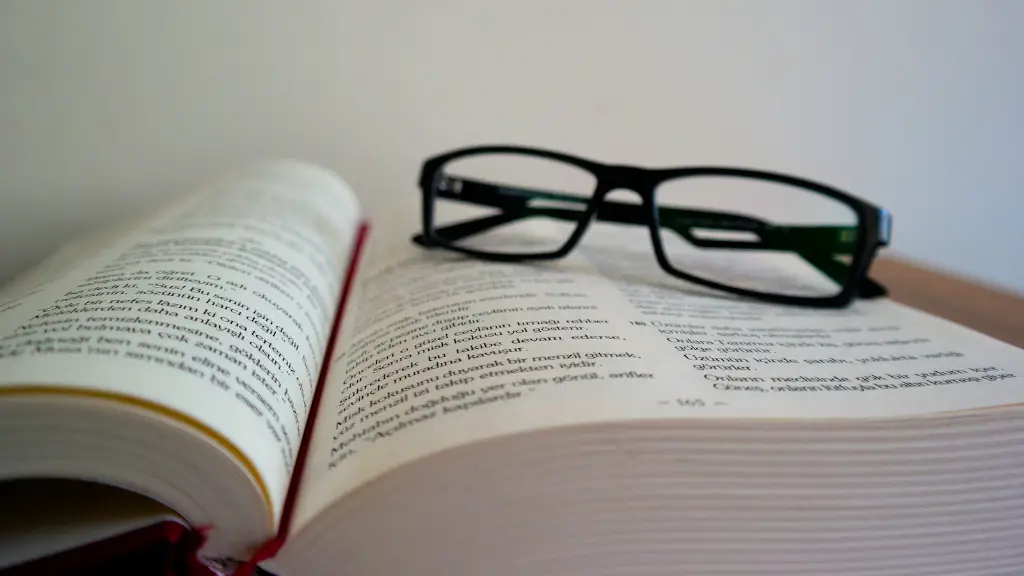Important Elements of Poetry
Poetry is a form of literature that has been around for centuries, providing numerous forms of creative expression. While there are several elements that distinguish poetry from other types of writing, like rhyme and rhythm, there are four key elements that all poems should have. These four main components of poetry are imagery, figurative language, sound, and structure. Understanding these elements and how they work together can make any poetry writing or analysis more effective.
Imagery
The most important element of poetry is imagery. It can be referred to as the art of words that produce a mental image in the reader’s mind. Through vivid descriptions and sensory details, poets can make readers truly experience the story. With effective imagery, writers can use the power of words to create a place, a character, a feeling, or an object in the reader’s mind that feels as real as if they were experiencing it in real life.
Figurative Language
Figurative language is another essential element of poetry. This type of language is used to paint a vivid picture in the reader’s mind, and convey deeper meanings and emotions. A few common figures of speech that are found in poetry include metaphors, similes, personification, and hyperboles. Figurative language is particularly important in poetry, as it enables the poet to show complex emotions and ideas that cannot be expressed through literal language.
Sound
Sound is another critical aspect of poetry. Poets use sound to demonstrate the emotional aspects of their poems and take readers on a journey. Through the use of cadence, rhyme, repetition, and alliteration, poets create an auditory experience that mirrors visual imagery. The careful handling of sound involves an understanding of structure and meter, which can help to create a narrative and keep readers engaged in the story.
Structure
Finally, structure is an important element of poetry. All poems have a form, which allows writers to tell stories, express emotions, and convey ideas. Different types of poem structures, from sonnets to epics, revolve around specific structural elements that express an emotion, create an arc of a story, or evoke a particular atmosphere. Poets often create a clear structure to organize their ideas, build on their narrative, and make sure readers can follow their story.
Creating Meaningful Poetry
These four elements work together to create meaningful poetry. By using imagery, figurative language, sound, and structure, poets are able to craft visual and auditory experiences for their readers. In particular, the use of imagery and figurative language create a vivid mental image that can evoke a greater response from the reader, while sound and structure guide the reader through a story and help to create an emotional connection. All four components are essential to poetry and help to make it the poetic art form it is.
The Role of Imagination and Expression
While these four elements are essential to any poetry, the ultimate goal of poetry is to tell a story, express ideas, and evoke emotion using the power of imagination and expression. Imagination is key to poetry as it allows poets to draw on their senses to create vivid imagery and engage their readers. Expression is also key to poetry as it enables poets to create meaningful messages that have a lasting impact. By combining both of these essential aspects, writers can craft powerful poems that will stand the test of time.
Conclusion of Self and Others
The four essential elements of poetry are imagery, figurative language, sound, and structure. Each of these elements plays a critical role in any poem and can help writers to create powerful and meaningful stories. As a poet, it is essential to understand how these elements interact to craft stories and evoke emotion. Additionally, imagination and expression are essential factors in creating meaningful poetry. By combining these elements, writers can tell stories and express their ideas that will make a lasting impression.
Power of Poetry
Poetry is a powerful form of writing that can be used to explore emotions and tell stories in a unique and meaningful way. Poetry allows writers to craft vivid imagery and engage their readers on a deeper level. By adopting the four essential elements of poetry, poets can create stories that transcend time and have an emotional impact on readers.
Benefits of Poetry
Poetry also has several additional benefits. Writing poetry may help to reduce stress, improve memory, provide emotional insight, and enhance empathy and creativity. As a form of art, poetry gives writers a chance to express themselves through their work and share it with the world. Poetry is also a great way for readers to understand a deeper level of the human experience.
Effectiveness and Beauty of Poetry
The effectiveness and beauty of poetry lies in its ability to use imagery, figurative language, sound, and structure to tell a story and evoke emotions. By combining these elements, poets can create powerful and meaningful stories that readers can connect with on a personal level. Additionally, poetry has numerous additional benefits such as improved creativity, emotional insight, and enhanced empathy. Poetry is a powerful art form that allows writers to explore their emotions and truths of the human experience.


